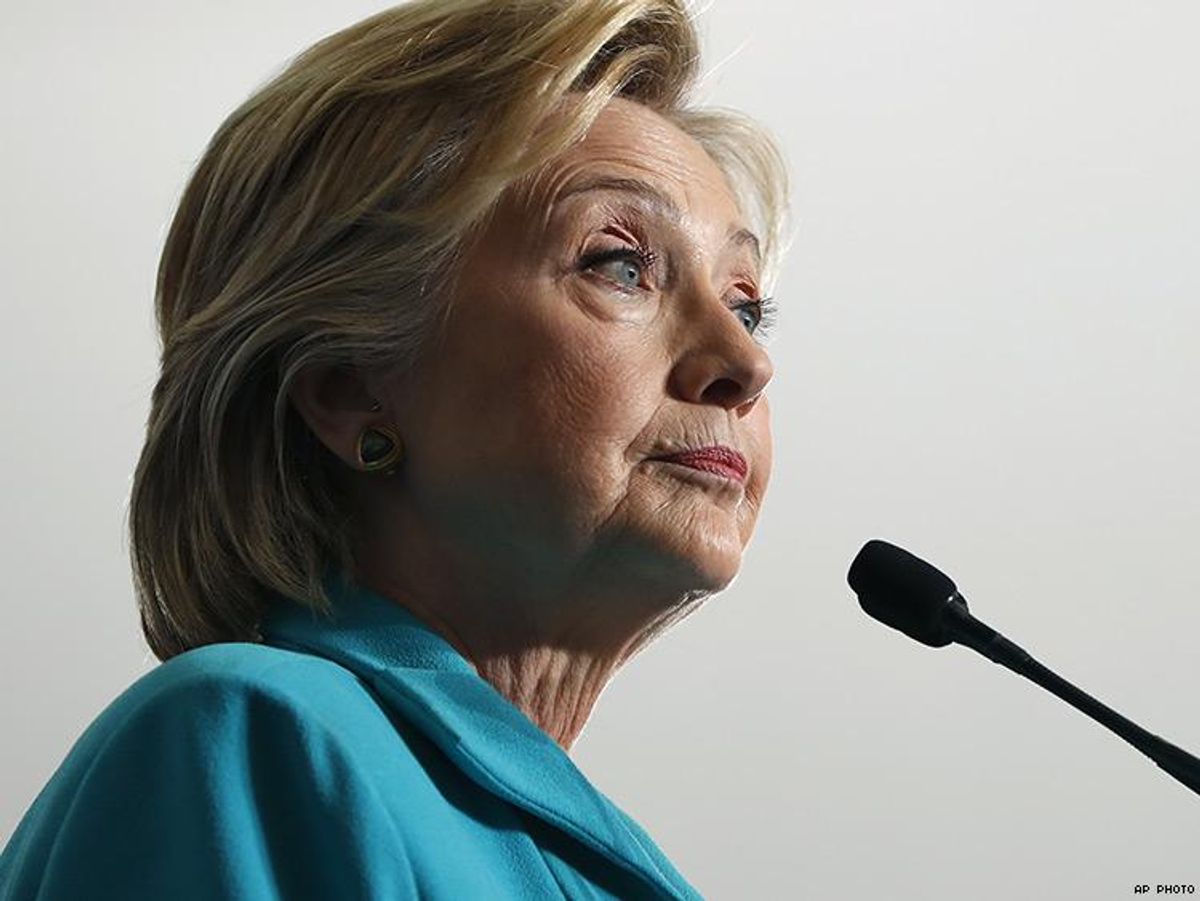Hillary Clinton's campaign today released a comprehensive plan to improve access to mental health care in the United States, highlighting the economic and human cost of untreated depression, suicidal ideation, and numerous other conditions.
If it were put into place, Clinton's strategy could have a ripple effect for LGBT people, who are not only more likely to struggle with mental health than their straight, cisgender (nontrans) peers, but are also often unable to access competent health care to help them manage these issues.
Perhaps most importantly for LGBT people, Clinton's mental health platform calls for federal support for suicide prevention, including a national initiative to combat suicide led by the U.S. Surgeon General and the adoption of evidence-based suicide prevention and mental health programs in high schools, colleges, and universities. The platform directly mentions LGBT people in its pledge to work with schools and experts "to ensure that students of color and LGBT students are receiving adequate mental health coverage."
Promising that Clinton will convene a White House conference on mental health during her first year as president, the platform calls for the unification of mental and physical health care, intended to ensure "the next generation [grows] up knowing that mental health is a key component of overall health and there is no shame, stigma, or barriers to seeking out care."
That focus on reducing shame and stigma will sound familiar especially to LGBT Americans, who have been navigating the negative health consequences of dangerous political rhetoric and intersecting oppressions since long before the "homosexuality" was first listed as a mental illness in the early 19th century.
Study after study shows that LGBT Americans suffer from mental health disorders at rates far exceeding heterosexual, cisgender people -- depression strikes gay men at six times the rate of straight men; nearly half of transgender people experience symptoms of anxiety and depression; lesbians and bisexual women also deal with higher rates of mental health problems than their straight sisters, with bisexual women faring even worse than lesbians. LGB youth are four times more likely, and questioning youth three times more likely, to attempt suicide as their straight peers; 41 percent of transgender people have attempted to end their lives.
The platform further discusses the importance of early diagnosis and intervention, calling for an increased public understanding that most mental health issues begin in childhood or adolescence. Improving the efficacy and availability of these evidence-based interventions, through information-sharing among experts, medical providers, and caretakers, will help strengthen the support networks already in place to help people with mental disabilities, the platform contends.
In a nod to the ways that class privilege and socio-economic status contribute to the mental health of various communities, Clinton's plan also acknowledges that the nation must better enforce existing health care parity laws and provide more and better housing and job opportunities for people with mental health issues.
The platform also admits that the modern criminal justice system has become the nation's "'front line' of engagement with individuals with mental health problems." Instead of placing mentally unstable individuals in prison, Clinton's plan looks to prioritize treatment over punishment (especially for nonviolent first-time offenders) and promises to invest in specialized recovery and diversionary programs to keep such individuals out of state and federal prisons.
Noting that as many as one in 10 police encounters in America involve a person with some form of mental illness, Clinton's plan stresses that law enforcement must receive better training in de-escalating interactions with individuals who are in the midst of a mental health crisis. Although police officers routinely interact with people struggling with mental health issues, most receive minimal training on how to respond nonviolently in such a scenario. A March study from the Ruderman Family Foundation determined that "up to half of all people killed by police in the United States are disabled," including those who have some form of intellectual disability.
The dangerous outcome of these uninformed interactions between police and disabled Americans was put on shocking display last month in Florida, when a North Miami police officer shot Charles Kinsey, an unarmed black man and behavioral therapist who was lying on the ground with his hands up, explaining to officers that the young man sitting next to him was his autistic client carrying a toy truck, not a weapon of any kind. After the officer shot Kinsey, the therapist reportedly asked the officer why he fired his weapon, and the officer responded, "I don't know."
In February, a 24-year-old transgender man in Arizona was shot to death in his home by police who were responding to a request for a wellness check from a coworker who believed the young man might be suicidal. Kayden Clarke, who had Asperger syndrome and trauma surrounding what he said were years of physical, emotional, and sexual abuse, allegedly brandished a 12-inch kitchen knife when two officers appeared at his door. The responding officers reportedly felt so threatened that they fatally shot the young man. Clarke was remembered as a gifted animal trainer and compassionate volunteer who had made headlines a year earlier when a video of him working with his service dog, Samson, went viral.



















































































Viral post saying Republicans 'have two daddies now' has MAGA hot and bothered